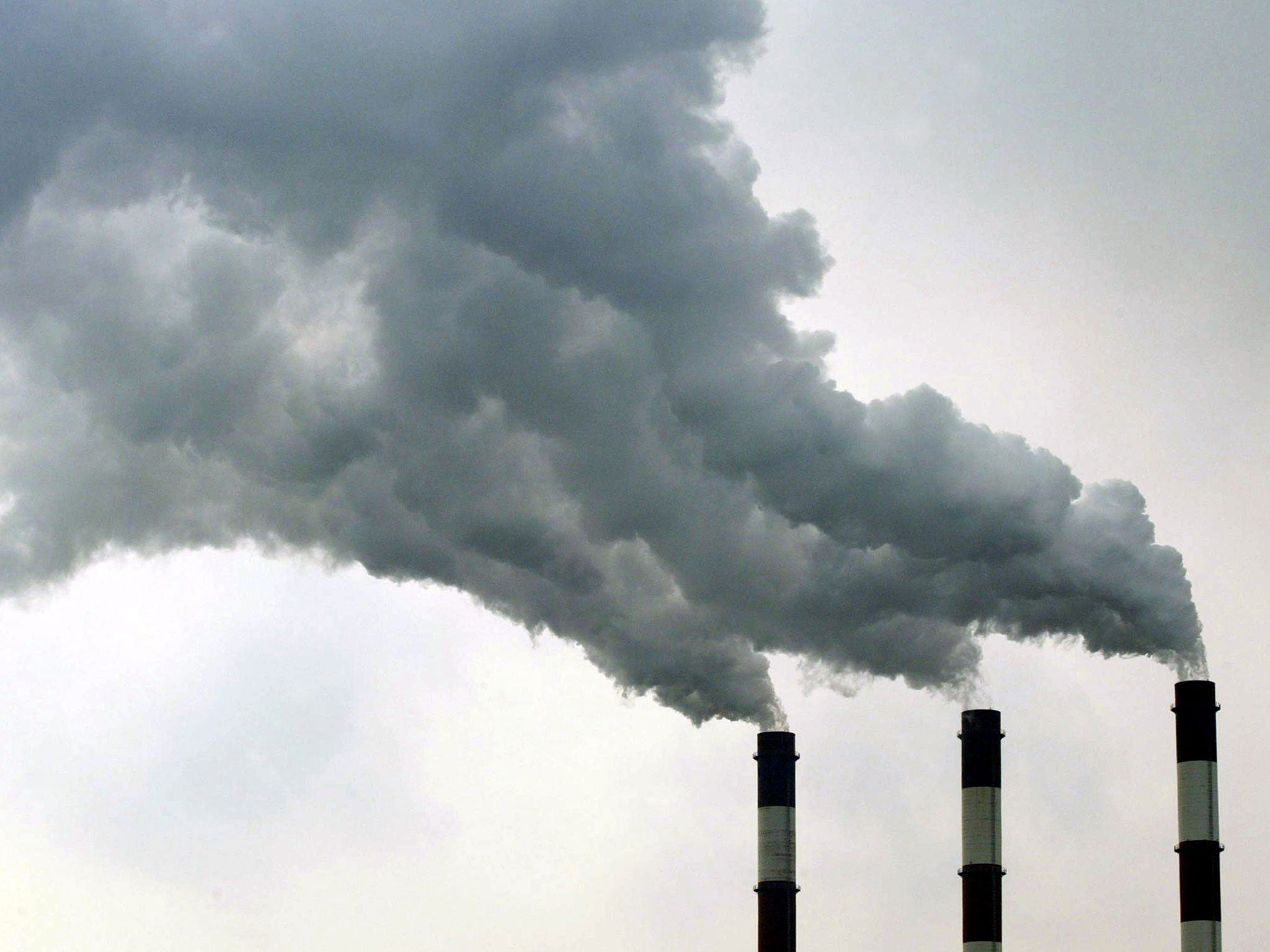Air pollution damages arteries of even healthy young adults, new study shows
Tiny particles produced by burning fossil fuels were thought to be mainly a problem for young and elderly people with medical conditions

Your support helps us to tell the story
From reproductive rights to climate change to Big Tech, The Independent is on the ground when the story is developing. Whether it's investigating the financials of Elon Musk's pro-Trump PAC or producing our latest documentary, 'The A Word', which shines a light on the American women fighting for reproductive rights, we know how important it is to parse out the facts from the messaging.
At such a critical moment in US history, we need reporters on the ground. Your donation allows us to keep sending journalists to speak to both sides of the story.
The Independent is trusted by Americans across the entire political spectrum. And unlike many other quality news outlets, we choose not to lock Americans out of our reporting and analysis with paywalls. We believe quality journalism should be available to everyone, paid for by those who can afford it.
Your support makes all the difference.Tiny particles of air pollution can damage the inner lining of veins and arteries in young and healthy people, putting them at greater risk of heart disease, stroke and high blood pressure, according to new research.
Air pollution is thought to cause the premature deaths of about 40,000 people a year in the UK, with children and older people with medical conditions thought to be the most at risk.
But the new study suggests that healthy people in their twenties are also being harmed by the particles.
The World Health Organisation has warned that air pollution is “wreaking havoc on human health” amid rising scientific evidence about the dangers.
The UK Government has been taken to court over its failure to keep levels within European Union limits, which scientists this week warned were not actually tough enough to protect people.
Research into the effects of air pollution on human health is often done by comparing air quality with the health of the local population.
But in the new study, published in the journal Circulation Research, a group of 72 people with an average age of 23, from the city of Provo in Utah, provided blood samples during the winters of 2013, 2014 and 2015.
When air pollution rose, the scientists found that the number of fragments of dead cells in their bloodstream increased.
Scientists are uncertain whether the PM2.5 particles, as they are known, are able to get into the bloodstream themselves or whether they damage the lungs, which then has a knock-on effect.
But one of the researchers, Professor Aruni Bhatnagar, an expert in cardiovascular medicine at Louisville University, said there appeared to be a significant effect on the health of young adults.
“These findings suggest that living in a polluted environment could promote the development of high blood pressure, heart disease, and stroke more pervasively and at an earlier stage than previously thought," he said.
“Although we have known for some time that air pollution can trigger heart attacks or strokes in susceptible, high-risk individuals, the finding that it could also affect even seemingly healthy individuals suggests that increased levels of air pollution are of concern to all of us, not just the sick or the elderly.”
In addition to damaging the lining of blood vessels, the particles were also “significantly associated” with an increase in immune cells, such as killer T cells, in the body.
Levels of proteins that restrict the growth of blood vessels also increased.
Commenting on the research, Professor Robert Maynard, the former head of the UK Health Protection Agency’s air pollution and noise unit, told The Independent in an email that the study showed a mechanism by which air pollution might be making people sick.
“This paper shows that exposure to fine particles causes changes in the activity of the cells, the endothelial cells, that line blood vessels,” he said.
“This change in activity includes the release of chemical factors that can affect the clotting of the blood and the activity of other endothelial cells.
“This study adds weight to the already substantial body of evidence that suggests that exposure to particulate air pollution can affect the cardiovascular system.”
And Professor Jeremy Pearson, associate medical director at the British Heart Foundation (BHF), said: “Air pollution increases heart attack and stroke risk both in the short term and the long term. The fine particles known as PM2.5 are particularly dangerous but we do not yet fully understand how they increase risk.
“This study provides good evidence that the particles cause immediate damage to the cells lining our blood vessels and enhance the disease process.
“Critically, this damage is found in young healthy people after short-term exposure, suggesting air pollution is a factor that directly contributes to the development of heart and circulatory disease.”
The BHF added it was “keen to work with governments across the UK to do everything they can to meet European Commission targets to improve air quality”.
Join our commenting forum
Join thought-provoking conversations, follow other Independent readers and see their replies
Comments